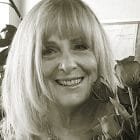
Lila Saucier, Guest Columnist
Hope Recovery Center is a proposed 50-bed residential and nonresidential co-occurring treatment center founded by Jeremiah Saucier and a diverse group of community members who believe it will have a positive impact on and in our community. It is highly needed, highly regulated, and will have the atmosphere of a peaceful rural setting that will benefit those who are seeking to be healed from addiction. It will be a hub of resources for our community and will open its doors to local Narcotics Anonymous and Alcoholic Anonymous groups who already hold meetings on the Key Peninsula.
The isolation of the Key Peninsula has created a community of sharing and caring, but also has resulted in the proliferation of sale and use of illicit drugs. Each addict’s personal story is different, but the lack of adequate accessible treatment options is a monumental challenge for this isolated community where living in the woods is a way of life that has left many addicts “place bound,” with diminished coping skills and very few options for escaping the demons of addiction. Hope Recovery Center will be strategically positioned to meet client needs while reducing the financial and social impact on the community.
In March of 2017, the Pierce County Department of Planning and Land Services granted Hope Recovery Center the green light to move forward in the application process for a conditional use permit for the property located at 4706 Key Peninsula Highway in Lakebay. If approved, this application, submitted in October of 2018, will determine what conditions will be required to develop this parcel, as well as the hurdles required to raise the capital funds to break ground. Hope Recovery Center’s board of directors is completely willing to comply with all of Pierce County regulations required for a conditional use permit.
Community members were able to gather at the Lakebay Community Church to meet with the board of Hope Recovery Center Feb. 1 in an open forum environment. The meeting was moderated by Chuck West and there was an opportunity for questions and concerns to be answered and expressed in a respectful atmosphere.
Some of the questions at the meeting were in regard to the impact that Hope Recovery would have on our community. Some have compared Hope Recovery Center to Olalla Recovery Center, which is a 40-bed residential treatment facility located in a similar rural community in Olalla. Below is a letter written by a local resident:
I live in the Olalla community within walking distance to the Olalla Guest Lodge. My husband and I and four sons, now raised, have lived here 16 years.
During this time, we have never had one negative incident concerning the recovery center.
In fact, the center had a significant impression on my life when, in 1989, while living in Seattle, my maid-of-honor overdosed and was not able to stand with me on our wedding day. She agreed to treatment. She is clean and sober today and victorious over substance, alcohol and dependency. I learned several years after moving to Olalla, that this was the facility where she got back on her feet.
You see, being removed and in a remote location does something for the healing process. Olalla affords this atmosphere as does the safety of the Key Peninsula.
If we are to be successful communities that have unity and thrive we must include the strong and the weak, rich and poor, young and old.
I ask that this Key Peninsula community would consider it an honor to provide a safe place to care for the weak and poor in spirit.
We’re all in this together.
(signed) Gretchen Costanzo, Olalla
On behalf of Hope Recovery Center, we thank all of our supporters and those in this community who continue to encourage and endorse this project. We look forward to that first person who walks out the door addiction free.
We continue to serve our community to the best of our ability, getting the addiction out of the way so the human being can live.
Lila Saucier is the administrative supervisor and co-owner of Crossroads Treatment Center in Lakewood, an advisor to the nonprofit board of Hope Recovery Center, and lives with her husband Jeremiah on the Key Peninsula.
